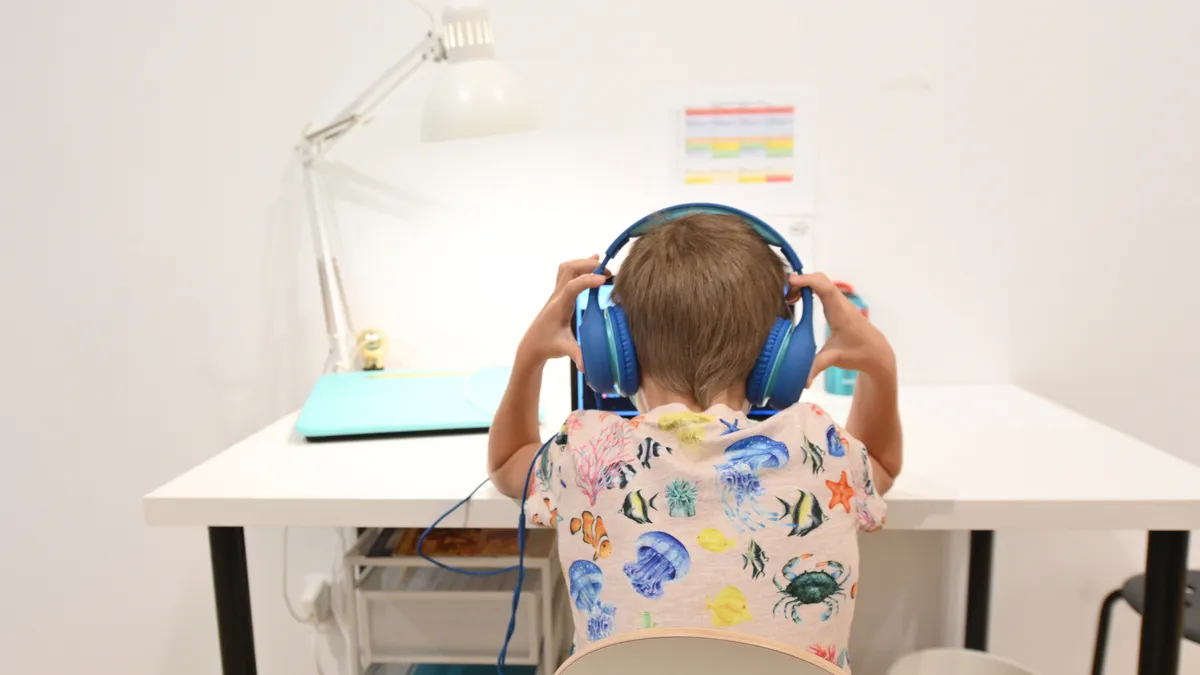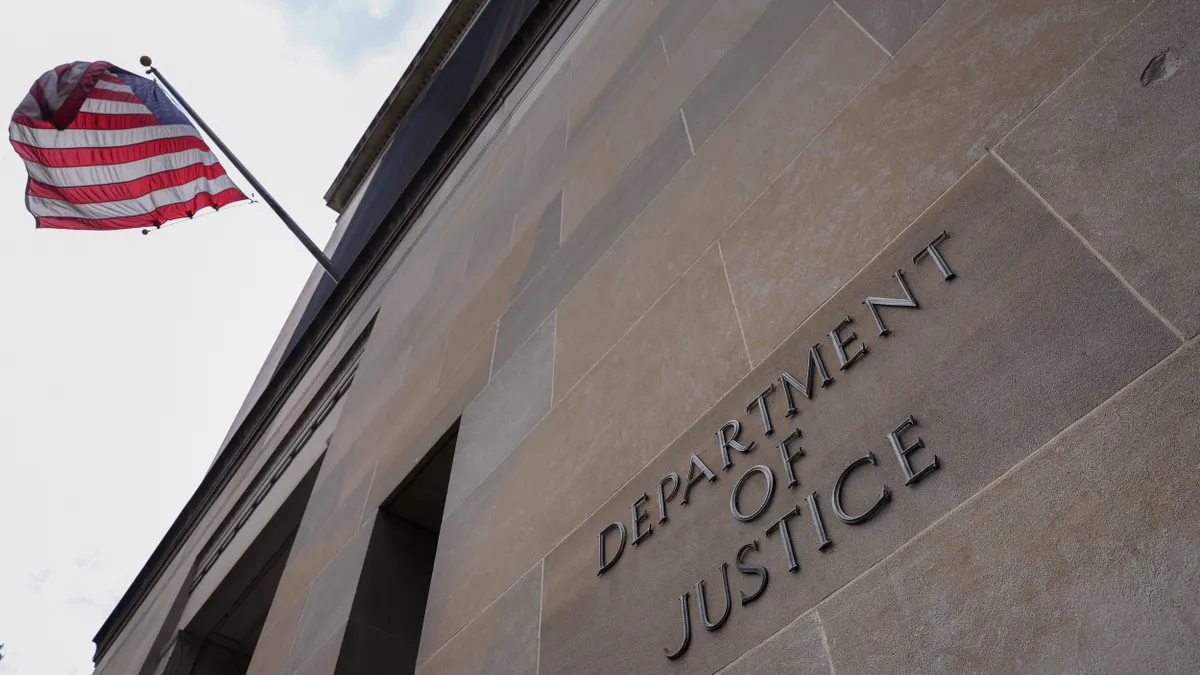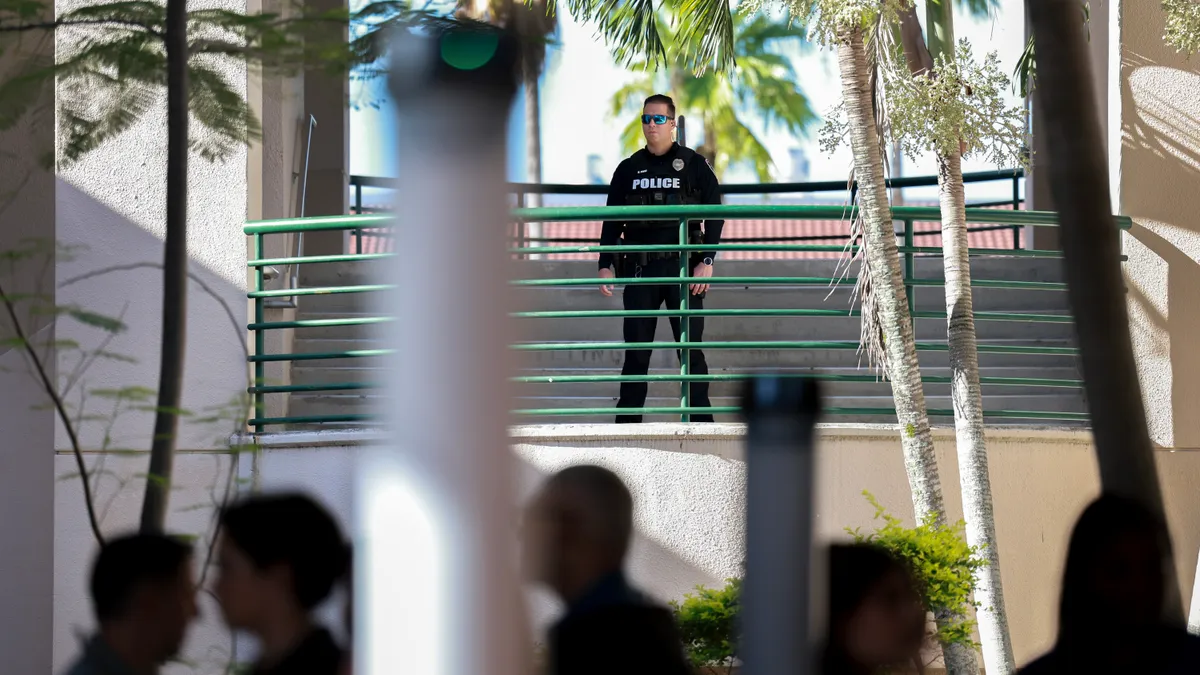The number of special education-related lawsuits against school systems due to extended school closures during the pandemic is lower than anticipated two years after the global health crisis began.
Although the pandemic continues to disrupt in-person learning and the statute of limitations for suing over missed services for students with disabilities has yet to expire in some places, school administrators, attorneys and disability rights advocates say their own experiences or anecdotal stories they've heard show the expected rise in litigation has not materialized so far.
"I was expecting a lot of litigation over the move to remote instruction and the period of time schools were in remote instruction, and I must say that I've called it wrong," said Jose Martín, an attorney with the Richards, Lindsay & Martín law firm in Austin, Texas, which represents school districts.
"I thought it'd be like a total wave, like a wave of litigation, and no, it hasn't happened that way," Martín added.
Julie Weatherly, a special education attorney for school districts in Alabama, Georgia and Florida, said while traditional special education litigation during the pandemic has increased slightly, the complaints don't seem to be attributed to widespread disputes over missed special education services during remote learning.
The special education community "did not see what we might have expected to see," said Weatherly, who is the founder of Resolutions in Special Education, a consulting and law firm that helps school systems resolve special education legal issues.
Likewise, Selene Almazan, legal director of the Council of Parent Attorneys and Advocates, a nonprofit that works to protect the civil rights of children with disabilities, said the organization has not heard of an increase in lawsuits over missed special education services during school shutdowns.
But the lack of litigation doesn't mean there aren't concerns about the adverse impact of school closures on students with disabilities and those students' access to compensatory education services. Compensatory services are additional services that can be offered as a nonlegal remedy to make up for missed evaluations or services either because of pandemic-induced school closures or for other reasons.
"I have brought it up to some families who were like, 'What do you mean compensatory? I can't even get what we're supposed to get now, much less try to compensate for last year.'"

Dustin Rynders
Supervising attorney at Disability Rights Texas
A survey COPAA conducted in October-November 2021 shows only 25% of parents said they were informed by their school district about the opportunity for compensatory services. The survey included 254 responses from 36 states and more than 200 school districts.
"We really found that there was a disconnect between what the feds were saying and how the locals were implementing the process for determining compensatory education claims," Almazan said.
Difficulty learning from home
The sudden move to remote learning in spring 2020 meant services were abbreviated, delayed or even missed for some students eligible for individualized services under the Individuals with Disabilities Education Act or Section 504 of the Rehabilitation Act.
While many school systems tried to quickly adjust by offering the same special education supports — such as speech therapy — virtually, some students and families had a more difficult time accessing or engaging in those online lessons.
Students whose individualized education program required intensive services and supports had a particularly hard time learning from home, said parents, advocates and educators. Several school systems tried to meet these students' needs by offering specialized in-person learning options before welcoming back the rest of the student body.
The abrupt move to remote learning in 2020 drew concerns from school administrators about the potential for lawsuits from parents over interrupted special education services. In a survey that year by the Association of Educational Service Agencies, a third of educational service agencies predicted special education litigation would dominate their time and resources in the 2020-21 school year.
But that wasn't the case. And now, many special education advocates and educators are focusing on ways to help students recover from pandemic learning setbacks.
"How are we going to bring these children up to speed where they should have been but for the fact that there was a pandemic?" Almazan said. "I don't have a good sense of how schools are going to make that happen."
Making up for lost time
U.S. Department of Education guidance issued in the early days of the pandemic in March 2020 made it clear schools still must meet their special education obligations — whether school was conducted remotely or in-person. That main message stayed consistent even after the 2020 presidential election.
Additionally, several Ed Department guidance notices over the past two years emphasized the use of compensatory education to address missed services. An Ed Department letter to the Council of Administrators of Special Education in January reiterated its long-standing position of the need for schools and families to work collaboratively to provide compensatory services when special education services are disrupted.
Those compensatory services are determined by the members of a student's IEP team and are ideally offered without filing a lawsuit, educators and disability advocates say.
"The questions and the concerns being raised are being resolved, and that's important because I think that our parents and our school district personnel are coming to the table, communicating effectively, collaborating and coming out on the other side of everything in the best interest of the student," said Phyllis Wolfram, executive director of CASE.
Wolfram said CASE recommends that IEP teams review student progress and performance data to determine if compensatory services are needed.
"The student might need more now, more than they needed before, but some students might not need more," Wolfram said.
In the end, it may remain unknown how many special education students needed or received compensatory services due to pandemic-related school closures. The federal government does not collect this data, although some districts and states may track this activity.
Early dispute resolution approaches
Parents of students with disabilities don't necessarily have to sue their school system to recover missed special education services. In fact, other earlier dispute resolution approaches — in addition to a non-litigated agreement for compensatory services — are recommended for parents and school systems before attorneys get involved.
Those early conflict resolution activities are typically more cost-effective and more expedient than the legal route of due process complaints and hearings. They can also foster collaborative family-school relationships, said the Center for Appropriate Dispute Resolution in Special Education, a technical assistance center funded by the U.S. Department of Education.
CADRE recommends that when conflicts arise, families and schools use approaches such as mediation or meeting facilitation to try to work out their differences before taking more adversarial avenues like litigation.
CADRE established its recommendations for dispute resolution processes and practices before the pandemic and did not create pandemic-specific approaches. CADRE does not offer legal advice and its resources do not necessarily reflect the Ed Department's position.
The organization is not tracking dispute resolution activity related just to the pandemic. However, it did see increased requests for resources that emphasize practices that address cultural and linguistic competency, trauma, and managing and responding to high emotions in meetings, Noëlla Bernal, an associate director and internal evaluator at CADRE, said in an email.
National data CADRE collected from the 2019-20 school year shows early dispute resolution activity to be steady compared with previous years. There was, however, a 4.8% increase in the number of due process complaints — or individual student lawsuits — filed against school systems between the 2018-19 and 2019-20 school years.
Some say the resolution of pandemic-related special education disputes may have been dependent on how well school districts and states promoted resolution activities to parents and educators.
In Texas, a state law in 2021 required IEP teams, known there as Admission, Dismissal and Review Committees, to add a written statement to each student's IEP that documents whether the student's special education services were interrupted, reduced, delayed, suspended or discontinued and whether compensatory services are needed.
That law might have helped keep pandemic-related special education litigation down in the Lone Star State, said Dustin Rynders, supervising attorney at Disability Rights Texas, which advocates for people with disabilities.
Texas schools also opened up for in-person learning earlier than several other states, Rynders added. "I haven't really seen a real thirst for wanting to litigate the amount of compensatory services for many families here in Texas," he said.
Disability Rights Texas did create a sample letter for families to send to their child's school to request compensatory services.
While the push to make up special education services missed during remote learning hasn't been notably high, Rynders said families are now dealing with delays in current services due to staff shortages.
"The workforce issues are impacting our clients, maybe more than anything else," he said. "I have brought it up to some families who were like, 'What do you mean compensatory? I can't even get what we're supposed to get now, much less try to compensate for last year.'"
Rynders and Weatherly also spoke of the difficulty to add make-up lessons into a school day or before or after school.
"I think people are concerned about — and I would include as I say people, school staff and probably parents alike — are concerned about identifying right now where their kids are versus trying to add to their plate," Weatherly said.
Theories why litigation isn't high
Martín noted a few reasons for why COVID-19-related special education litigation hasn't been as high as anticipated. For one, not every corner of the country has access to attorneys who specialize in IDEA litigation.
Additionally, hiring an attorney is out of reach financially for many families. A 2019 Government Accountability Office report found the percentage of districts with at least one special education dispute was 44.2 percentage points higher for very high-income school districts compared to very low-income districts.
While local and state education agencies, parent information centers and disability rights advocates provide resources to help parents understand their rights under IDEA and their dispute resolution options, the GAO report said parents can feel disadvantaged by the school district's knowledge and financial resources.
Parents also may not be able to take time off from work to attend due process hearings, according to GAO.
Another theory voiced by school administrators and attorneys is that schools worked with families throughout remote learning and afterward to provide the required services in students’ IEPs. Federal relief funding also propped up local budgets' abilities to offer extra services such as 1-to-1 tutoring and summer school for all students, including those with disabilities.
"The questions and the concerns being raised are being resolved, and that's important because I think that our parents and our school district personnel are coming to the table, communicating effectively, collaborating and coming out on the other side of everything in the best interest of the student."

Phyllis Wolfram
Executive director of the Council of Administrators of Special Education
Still, others say it's too early to fully analyze the legal impacts of lost special education services because the pandemic is ongoing. Although nearly all schools are open full time for in-person learning, some students with disabilities, particularly those with compromised health conditions, continue to struggle with meaningfully participating in their special education supports and services, say disability rights advocates.
"For those students who are still on virtual platforms, I have a big question about how their needs are being met," Almazan said.
IDEA gives a two-year statute of limitations for when a parent knew or should have known about an alleged action that forms the basis of due process litigation. States, however, have flexibility to stretch that timeline if they desire. New Jersey legislators, for instance, passed a law in March to extend the deadline to Sept. 1, 2023.
Rynders said he hopes the pandemic provides lessons for both sides: that compensatory services will no longer be seen as an adversarial tactic by parents, or as intentional harm from a school system toward a student.
"We ought to, as adults, be able to put the child's needs front and center and not feel like that is something that is so difficult to talk about," he said




















